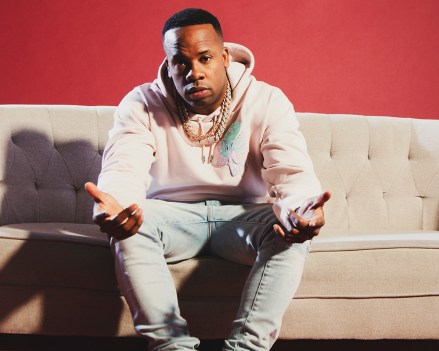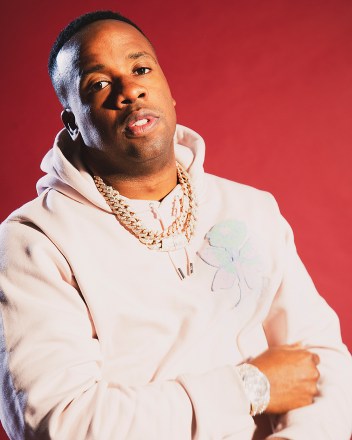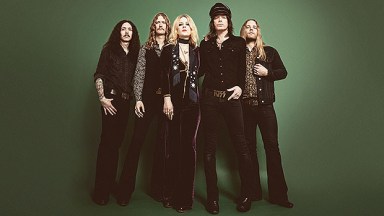
There are many ways one could describe “Gone With The Wind Is My Love,” the new collaboration between heavy metal’s shining (morning) stars Lucifer and Elin Larsson, the badass vocalist at the helm of hard rock group Blues Pills. With haunting orchestral strings and a sinister guitar solo, the song might conjure adjectives like “bewitching” or “enchanting.” With how Elin and Lucifer’s Johanna Sadonis weave their vocals around in a graceful duet, one might find this song “energizing,” “empowering,” or “electrifying,” like a thunderous clap of rock thunder bursting up the spine. Perhaps the best term comes when Johanna describes her band’s sound, telling HollywoodLife that Lucifer’s take on heavy metal is not retro or revivalist. “I think it’s timeless,” she says. “That’s what I think.”
One could also think that “Gone With The Wind Is My Love” is ingenious by showcasing metal’s primordial roots and how the genre first grew from the soil of blues and northern soul. First recorded by Rita and the Tiaras, the song was released in 1967, the same year Lemmy Kilmister quit the mod quartet The Rockin’ Vicars and two years before a blues-influenced rock band by the name of Black Sabbath played their first show. With “Gone With The Wind Is My Love,” it feels that both Elin and Johanna’s bands would feel at home sharing a bill with both Sabbath and the Vicars. “I can say for this Lucifer we are taking a big bow towards the founding fathers of what’s now Heavy Metal,” Johanna says alongside Elin in the interview. “I feel in general, the mainstream Metal is moving more and more away from that, and we are kind of still steeping our sound into the late ’60s Heavy Rock and the early ’70s or all of the ’70s Heavy Rock because we just think that music was the best then.”
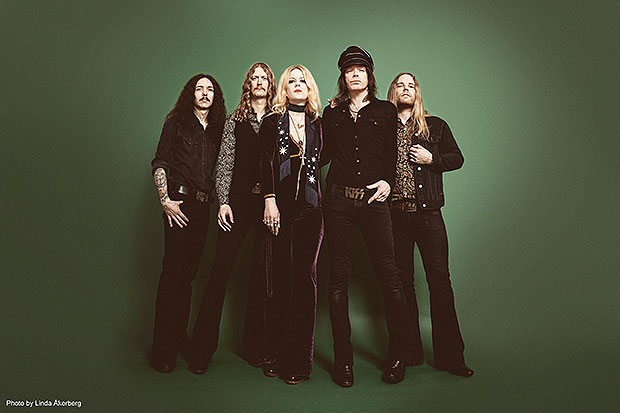
Many artists seemingly turned to their record collections during the COVID-19 pandemic, finding a familiar comfort in a very unfamiliar sign. “Gone With…” was a song that Johanna always loved (“A little bit of a hidden gem,” she says) and had been meaning to cover it for a long time. “And since Elin is a really close friend of mine,” she says,” I had in the back of my head for a long time to ask her to sing a song with me. I thought this one’s perfect because it’s also a little bit unusual for my band, Lucifer, but Elin’s band is maybe more soulful and bluesy, so I thought she is the perfect fit.”
“I wanted to do something with you since I first met you in Berlin in 2012,” says Elin, addressing Johanna during the chat. “So when we had the chance, when Johanna moved to Sweden, there’s an opportunity, and we hung out, and we recorded the song. I actually hadn’t heard the song before Johanna showed it to me, so it’s all her credit there.”
The record marks the third release from Riding Reaper Records, the label founded by Johanna and her husband (and fellow Lucifer member) Nicke Andersson. “We founded a small record label to put out 7″ on our own,” says Johanna, “because our recording deal allows us to do that in between albums because they’re usually a little bit unwilling to do that. But this time, we got it out on Century Media, which is part of Sony Music, so that’s really cool.”
By putting out the song on a physical medium, many girls and boys will mimic Johanna’s experience of discovering the song and having a sense of connection with the music. “There’s something about that where you can touch it,” says Johanna, “and when you put on a record on your vinyl player, and you hear the little crackling and so on, it’s like a ritual, and I think it gets you closer to the music.”
Plus, you never forget your first one – the first song you fell in love with, the one you feel like you owned. “Mine was a Joe Cocker record from the 1980s,” said Elina. “And then, the Spice Girls, of course. I was growing up during the ’90s, so I was a huge Spice Girls fan, as well as Joe Cocker. It was a good mix.”
“The more you listen to, the more inspiration you get, especially also developing your instrument,” continued Elin. “I think one of the things I really liked with Spice Girls when I was young was hearing all the different voices and their attitude, and the same with why I fell in love with this Joe Cocker album was because of his voice above his character. So I’m always fascinated by the different voices, and for me, I love songs and music and bands, not like different genres overall.”

For Johanna, it was a similar mix of divergent artists. “I’m a little older than Elin,” she says. “So, I grew up with music in the ’80s. So for me, it was Madonna. I was a huge Madonna fan as a kid. And then, when I was 13, it was Metallica. That was like the start. Metallica and Danzig and Guns N’ Roses.”
These influences – Madonna and Joe Cocker, Danzig and the Spice Girls – can be heard on both Blues Pills’ Holy Moly! and Lucifer’s Lucifer III, both released in 2020, both released at a time when neither band could tour to support them. With vaccine rollouts and concert halls opening back up, do either regret not pushing back a year?
“No, it was actually a good thing that we did that,” says Johanna. “First of all, it was just right before the album came out that shit the fan. There was no way that I was going to tell people who were waiting for the album, ‘Oh, sorry. It’s not going to happen.’ Also, by the time a band puts an album out, it’s already a little bit old for the band, because of the whole process of recording it and getting there that it can be released, you want it out there, and you want to start working on the next thing, which we did.”
“Now, we have just finished recording the next album, so we have another one coming out around Halloween,” shares Johanna. “So it’s going to be our second corona album. It’s going to be weird when we’re going to go on tour because last time, we had a set list that consisted of stuff just from the first two albums [Lucifer I and Lucifer II]. Now we have four albums. So it’s going to be a little bit weird supporting two albums on tour, but what else are you’re going to do with your free time as a musician than recording music, when you have, especially with us, with our own studio? Got to keep busy.”
“We sort of regret us putting our album out [last] year,” says Elin. “We were supposed to put it out in June, but then we postponed it until August, I think, if I remember correctly,” Elin said that Blues Pills was in the middle of releasing the singles when the pandemic hit. With tours canceled, she says the band decided to take the financial loss. “Now we’re also recording and writing new songs and material,” she says. Though Elin says it was great to have fans react to new music in a time of uncertainty and fear, COVID left a financial impact on her and the band. “We also had, let’s see, a year off before the pandemic, so money-wise, I was fucked.”
As venues open and scenes rebuild, there is a chance to view this post-COVID world as a chance for a hard reset. Though there may be a nostalgia-twinged desire to not revert to “business as usual,” at least when it comes to sexism within rock and metal. Both Johanna and Elin have discussed this topic, with Blues Pills’ Holy Moly! kicking off with “Proud Woman,” a burst of female pride.
“Give us space, give us space, give us the stage,” says Elin when asked what is “the sexism question” (i.e. what can be done to make these scenes more welcoming to anyone beyond white, straight men.) “Because when you guys ask us, the female in the scene, which is we’re basically the lower percentage, we can only do so much. But since there are mostly male bands and artists in Metal and Rock, what are they doing? Why aren’t people asking them this question, ‘What can you do?’ Just give us space and give us time on stage. Put us on the festivals, write about us in the magazines, lift us up. Because otherwise, for me — I work at school now during the pandemic, I’m a music teacher there, and for me, what I see in the young girls there is that when I play the drums or when I play the electric guitar, they pick it up and they play it. So that’s probably why there are so many male artists in Rock and Metal because other guys pick it up, and they see it. That’s the same as what we have to do for the young girls.
“One thing is that I fear that women often get reduced to superficial things,” adds Johanna, “like their looks and so on, and it’s talked more about that, ‘Oh, what’s she wearing there? Instead of what kind of song that you write and what kind of album did she make? But that’s also, again, it starts how kids get raised, and if a little girl hears, ‘Oh, you look so cute,’ instead of, ‘Oh, you do this thing that’s awesome.’ And that I feel a lot still in journalism when I come across articles and so on. It also depends on the country. Nobody would point out in the headline, ‘Oh, the redhead Dave Mustaine.’ But we hear, ‘The blonde so-and-so.’”
While referring to the Megadeth leader as “the fire-haired shredder of ‘Peace Sells’” will not instantly solve all the world’s problems, a change of perspective – particularly how female artists are viewed – is in need. “I have that example with Nicke and me, because we write the songs 50/50. For some reason, people always assume he’s the one doing everything, and that’s not fair,” says Johanna. “I’ve had that,” adds Elin. “It’s the same here.”
“I think no matter what happens, I’m always just trying to think I do what I love doing,” says Johanna, “and there’s always dickheads, excuse my language, but there’s also a lot of awesome people that don’t care about that kind of stuff, and they just enjoy the music. That’s the main goal, and that should be the focus. I’m not trying to waste time with…” With dickheads? “Exactly,” she says.
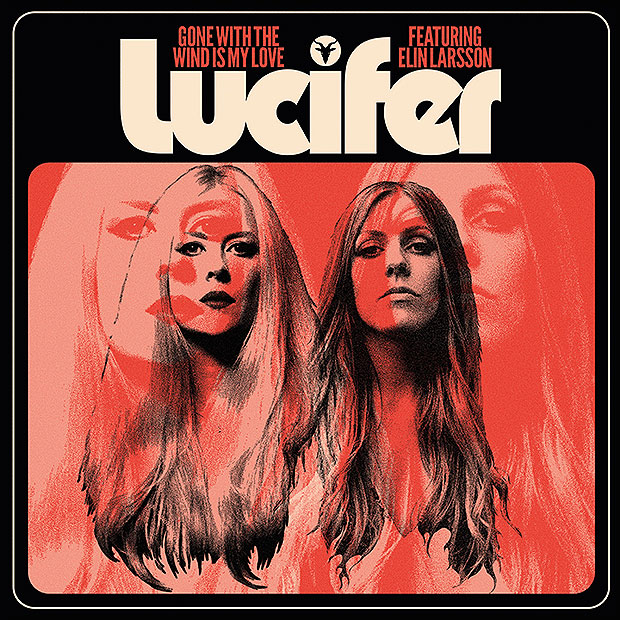
At this point, women and BIPOC have said what needs to be done. The ingredients to make a better metal world for all have been laid out for the dudes in the scene to pick up and get to work. While they do that, Blues Pills and Lucifer will focus on touring. Blues Pills have already announced a run of dates at the start of 2022, and Lucifer will hit the road in Europe in November.
“Right now, I used to miss everything, even missed the smell at festivals,” says Elin. “I’m just so pumped to go back and play. Just also watch other bands and meet people. This is insane, for all of us just to be isolated. I’ve been hanging out with my husband. It’s also I’m proud that we haven’t killed each other yet, I guess. But you want to play, you want to see other bands play, and you want to go places.”
“I miss touring like crazy,” says Johanna. “I’m dying to get out, and I’m dying to go to a show myself and just stand there with my friends with a drink in my claw.” When asked what they don’t miss about touring, Johanna mentioned how the ban doesn’t often get a green room in the U.S. “As a woman sometimes when you have to squeeze yourself into a leather French onesie, you don’t want to go to the public bathroom to do that. That’s a little bit humiliating, but what can you do? Rock and Roll.”
—
“Gone With The Wind Is My Love” hits streaming services on June 4. The 7″ is on sale now.
